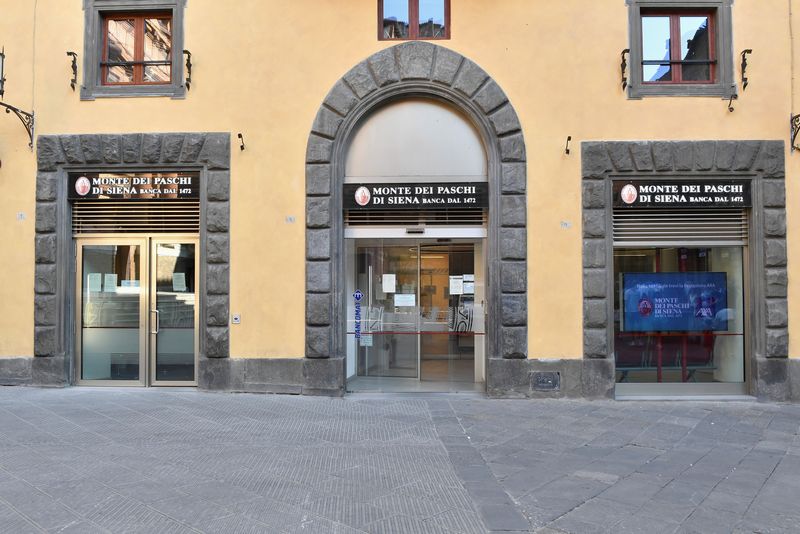
[ad_1]

© Reuters. General view of a branch of Monte dei Paschi di Siena (MPS), the oldest bank in the world, which is facing massive layoffs as part of a planned business merger, in Siena, Italy, August 11 2021. REUTERS / Jennifer Lorenzini
2/2
By Valentina Za
MILAN (Reuters) – Italy’s larger banks are still expected to pay a one-off banking tax despite the government at the weekend offering lenders a way out in return for putting aside cash to boost reserve buffers.
The government sparked a market rout last month with the surprise announcement of a 40% tax on the profits banks are reaping from rising interest rates.
Now documents show it is planning to give lenders the option to instead boost non-distributable reserves by an amount equivalent to 2.5 times the tax, which will be capped at 0.26% of risk-weighted assets (RWAs) rather than the 0.1% of total assets initially proposed.
The option would benefit banks that hold a higher proportion of Italian government bonds among their assets relative to loans.
“The top-tier banks will probably opt to pay the windfall tax rather than allocate the amount to capital, as the impact of the tax is manageable and payment would seem more ethical,” Societe Generale (OTC:) said.
Banca Akros and broker Equita also expect most banks to pay the tax.
Akros pointed to the “already abundant” excess capital of Italy’s listed lenders and investment cases based on high capital distribution to shareholders. Equita also said paying the levy would allow lenders to maintain more flexibility over their remuneration policy.
Equita listed state-owned Monte dei Paschi di Siena and unlisted cooperative lender ICCREA, neither of which plans to pay dividends this year, as the biggest beneficiaries.
“(They) will reasonably put the earnings to reserves and will not be subject to the extraordinary tax.”
Bank assets are weighed based on the risk they carry, which current rules put at zero for government bonds.
Switching the tax basis to risk-weighted assets helps banks which have a lower ‘risk density’, meaning the average risk weight per unit of exposure.
“The impact of the new tax definition is lower for entities characterised by a more capital-light business model and consequently with a lower RWA density,” Equita said, naming Fineco and Banca Generali (BIT:) among asset gatherers and Credem among traditional banks.
Italy’s banking index reversed earlier gains to stand flat on the day by 1229 GMT.
[ad_2]